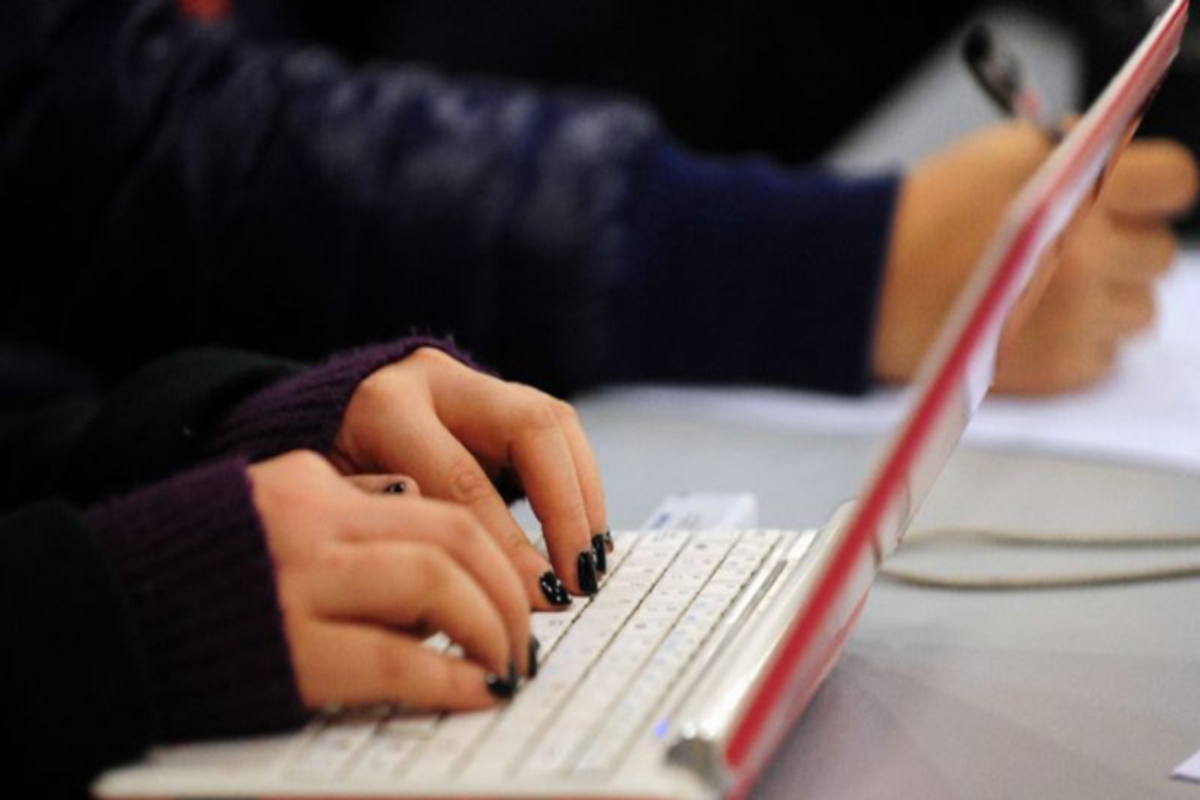Private sector varsities go digital as public sector struggles to get online
Pakistani universities are still figuring out how to continue operating while avoiding the coronavirus

As soon as the coronavirus hit Pakistan — even before provinces announced lockdowns — educational institutions across the country were the first to shut down.
The decision to do so had plunged all varsities into a crisis, as the shutdown orders came as academic activities were in full swing.
Since then, some in the private sector have already switched to online classes; but for public sector universities, the adoption rate has been low, as the challenges they face are very different.
Geo.tv spoke to professors from different universities of Karachi and asked them what they think of online classes and whether they are here to stay permanently:
Shut down or create parallel system
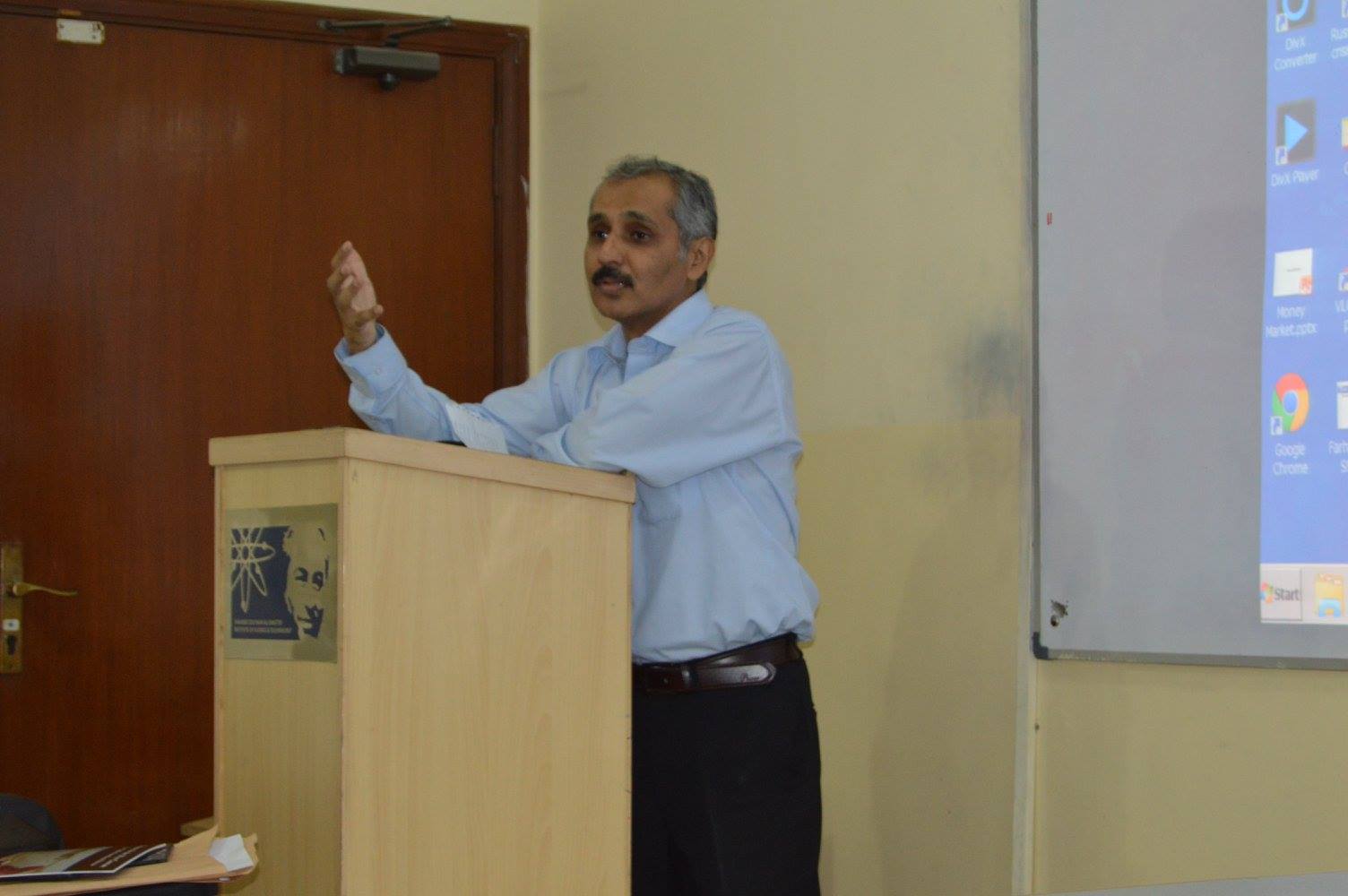
Shaheed Zulfikar Ali Bhutto Institute of Science and Technology's (SZABIST) Dean of the Social Science and Education Department, Professor Dr Riaz Shaikh, noted that the impact of the coronavirus on the education sector was very abrupt, and that no section of society was really prepared for the pandemic.
“[Now] There were two things [that could be done]: to either shut down completely, or run a parallel system,” Dr Shaikh told Geo.tv while speaking about the challenges faced by university administrations as the coronavirus hit Pakistan.
“The technology was already there, even if the resources were not up to date,” explained Dr Riaz while talking about the private sector's transition to digital. However, he added that the case was not the same for the public sector, which was overwhelmingly using conventional methods of teaching.
The sociologist shared that despite everything, educational activities were still not at 100% due to the loss of physical connection between students and teachers. He also added that students from out of the city have been facing a lot of problems.
“In our Islamabad campus, some students are from Chitral, Gilgit etc, where [internet] networks are not working at times, which leads to problems,” Dr Shaikh highlighted.
The professor explained that distance learning is a popular teaching method, but requires training of both students and teachers. “The problem is that there is no physical contact and maintaining concentration digitally is very difficult over longer hours,” he explained.
Dr Riaz agreed that online classes are here to stay, but clarified that “capitalism will also have an important role” in deciding its future.
“The greed factor is very important and fees have been reduced. This means the margin of profit has decreased, and the institutes will therefore want to re-open,” said Dr Shaikh.
But he explained that the digital learning system will stay because it is helping organisations be more flexible.
“If it turns into an industry tomorrow and there is investment towards resolving issues, then those who cannot attend physically will give preference to online classes,” said Dr Shaikh.
‘No substitute for face to face interaction’
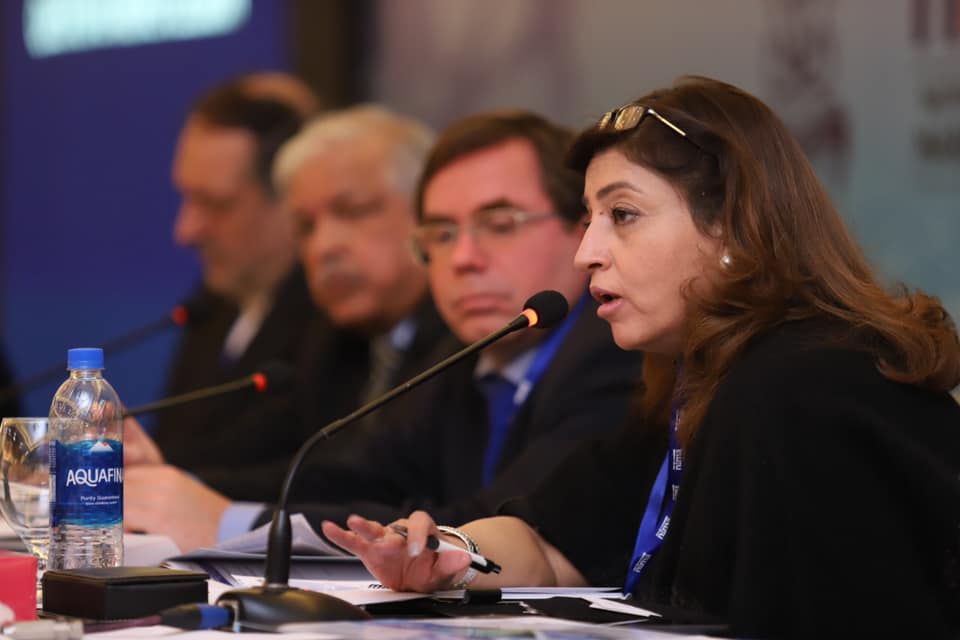
Associate Dean of the Institute of Business Administration (IBA), Dr Huma Baqai, shared that her varsity was among the first to go online after the shutdown.
She shared that IBA has created a digital learning system which will not affect those who suffer due to poor connectivity issues.
“We did not make attendance mandatory. And uploaded the lectures online for students to see [at their convenience],” Dr Baqai told Geo.tv.
When asked about her experience, the professor stated that there was no substitute for face to face interaction. She also shared that 90% of the faculty was not trained at online teaching and were not comfortable with it.
Dr Baqai also highlighted the “digital divide” in the country, which she said was a problem that needed to be looked into.
“Pakistan is a country which suffers from the worst kind of digital divide. It is for the privileged universities to adopt such methods [like online classes and distance learning],” said Dr Baqai.
Dr Baqai also shared that IBA has asked its teachers to choose a pass or fail option in grading students. She added that it was implemented because they did not want to bring in a system where the underprivileged students were left out.
“If we are supposed to go towards online education then we have to do a lot to address the digital divide,” emphasised the professor
However, she stated that the world was also gradually realising the need to arrive at a new normal. She added that this also includes provisions to make physical teaching possible again.
“Physical teaching needs to be introduced with social distancing and hygiene, and we will have to go back,” Dr Baqai said, adding that the need to go back to the basics can be highlighted just by the plight of public sector universities which have been shut down.
But it’s not just the public sector. Dr Baqai noted that there are technical courses that require the physical presence of teachers and students, which is why there was a need to return to in-person teaching.
In her final verdict, Dr Baqai stated: “We can choose to do this as a stop-gap arrangement so the semester is not lost.”
‘Game time decision’
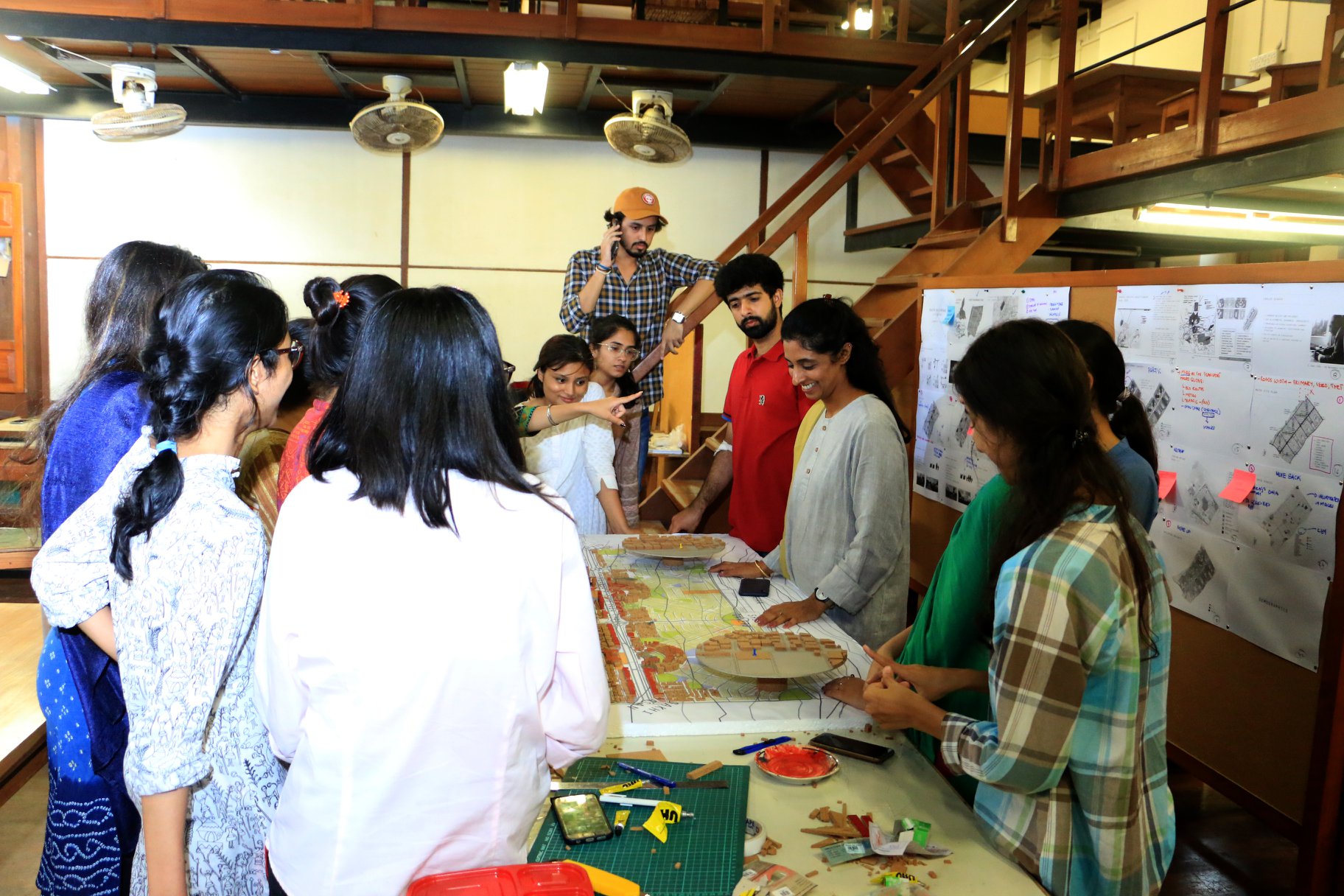
Head of the Architecture Department at the Indus Valley School of Art and Architecture (IVSAA), Sumaila Palla said the move to online learning was “extremely rapid and a game-time decision”, adding that with all the uncertainty “it was the best decision” that they had made.
“We first thought that online learning would save time, since students aren't commuting or transitioning: but online studios and conversations surprisingly take significantly longer,” Palla told Geo.tv as she spoke about her experience of online teaching.
To her surprise, she also found that one-to-one interaction and facetime in online classes were more intimate, and focused.
“Even the shy students are much more comfortable speaking and taking their time — which does not necessarily happen in person,” Palla mentioned.
The architect also believes that virtual learning was a “long time coming”.
“To save physical space and without all the supplies available — students have had to self-teach through various apps that can help them better communicate their ideas and designs,” Palla told Geo.tv about the challenges art and design students face while studying online.
“It has forced them to improve on their visual presentations, since they are being viewed close up,” said the architect.
IVSAA. which has studio learning embedded in its ethos, has had an added challenge when it comes to transitioning to online learning. According to Palla, her department had to change “deliverables and their approach, especially during the site and user analysis phase”.
“We cannot require students to experience the context, conduct in-person surveys, and observe human behaviours and patterns [at a site they wish to study], which can stagnate an individual’s design,” highlighted the professor. She added that the faculty has tried to get creative and provide the students as much information about the site as they can.
“We will witness how that has impacted their design thinking in the next few weeks,” shared Palla.
The head of the department also believes that the “biggest downside” to going virtual is what she described as “virtual burnout”.
“We have always heard that increased screen time can impact a person's health negatively, and while physical burnout always occurred on campus — the virtual burnout is much more different,” said Palla.
She added that the problem becomes more worrisome as the faculty is not there in person to motivate the student and they have to learn how to “self motivate, push their timelines and goals, and trust themselves much more”.
But for now, she waits to see how her students respond as the semester is yet to end.
“The classes that are offered online can be so beneficial to students. They can take in knowledge from architects and academics all over the world. They're just a screen away!” said Palla.
Public sector struggling to take off
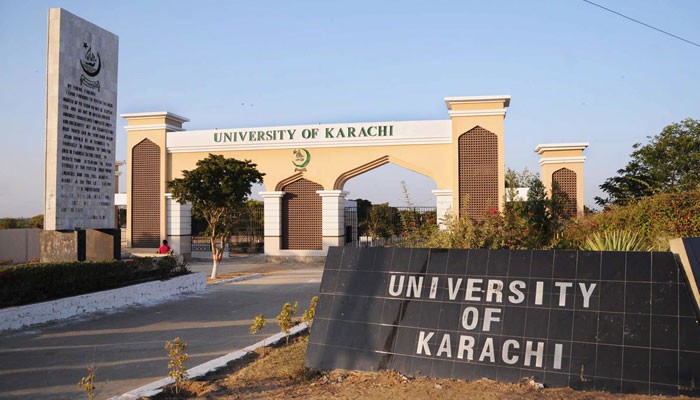
While the private sector universities may have adapted to the challenge quickly, Karachi University (KU), the city’s largest public-sector varsity, is still struggling to deal with challenges and is yet to finalise a method to resume academic activity.
Dr Naima Saeed, assistant professor in Karachi University’s Criminology Department, noted that no one was ready for the situation and like everyone, the education sector was also not ready.
According to Dr Saeed, for KU, the biggest problem is figuring out a way to introduce an online learning system. She added that varsity was still deciding whether to continue with the same semester or start a new one.
“KU has a lot of students and we are thinking of how to deal with them,” said Dr Saeed as she explained the enormous task that her organisation faces.
Dr Saeed, who is also the student advisor of the department, shared that another problem they face is in deciding how to go forward with subjects that require physical presence, such as the 'pure sciences' or subjects where 'practical work' is required.
“It is possible to hold online classes for social sciences and management sciences,” said Dr Saeed, adding that it was not applicable for all classes.
The criminologist also shared that one of the struggles that they were facing was how they could keep all the students in the loop when they are spread all over Pakistan.
“We are trying to resolve this, but it will not be resolved so early and needs planning,” emphasised the professor.
She added that constant meetings were going on between the faculty and Vice Chancellor Dr Khalid Mahmood, but since the problem is not one that they have faced before, it needs time.
“We are holding meetings but the capacity is not there,” said the professor. She added that KU will have to consider everything, such as how to carry out exams and may also have to restructure courses.
“We may have to increase objective papers,” suggested the professor.
“Teachers need to be trained as they deliver lectures manually and do not have the experience and need to be prepared to use this,” explained Dr Saeed, but added that it was not an impossible task as it is being used worldwide.
“This system will stay and we need to formulate a strategy in case a similar unexpected situation arises, such as a war,” said Dr Saeed.



